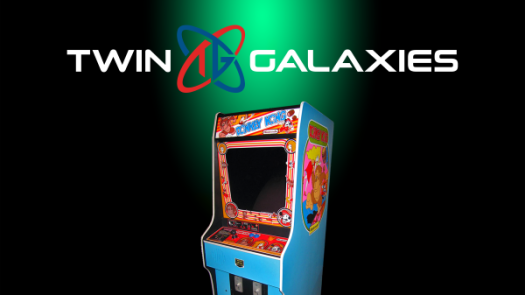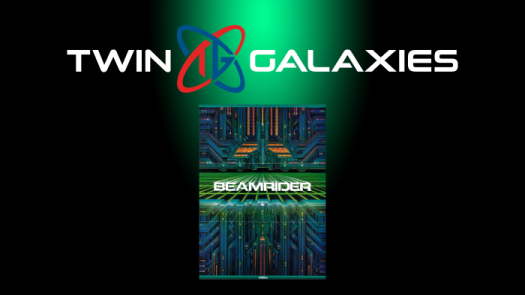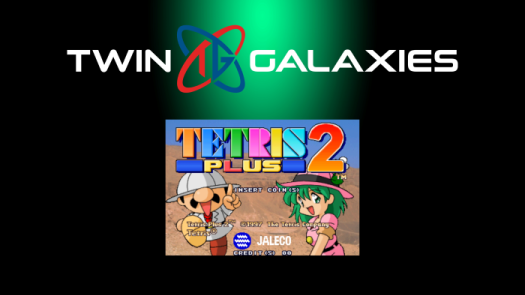In the early 80s video games were very different than are today. Arcades drained the quarters of teenagers in dark, hazy dives. The Nintendo Entertainment System slowly made waves across the world. Atari became a household name and just as quickly sunk into oblivion. Arguably the most popular 8-bit computer ever, the Commodore 64, found its way into many homes during this era, where consumers quickly learned that video games were not only fun on computers as well, but there was also a vast array of opportunities for those that enjoy tinkering with their toys. In an effort to capture that magic, the C64 Mini has been released, which gave us the perfect chance to talk with one of the most prominent figures in the still active C64 community, Joerg Droege, Organizer and Founder of Scene World.
The Commodore 64 launched in late summer of 1982, an 8-bit computer back when they were fitting a whole unit inside of a keyboard rather than the tower designs used later on. The system would become quickly known for its video game offerings and even today games are being developed on the unit. They are also tough systems as many of the ones purchased back in the '80s are still fully functional.
The C64 Mini was put together by Retro Games Ltd, which shrinks the unit by about 50%, adds HDMI output, and enables users to load their games via USB. Originally, they had planned to do a full unit with a handheld component, but there were some issues somewhere along the way. Hopefully, the handheld project will return at a later date.

Unfortunately, the keyboard on the C64 Mini is not functional and is only a part of the unit’s housing. A keyboard can be connected via USB though and BASIC is included in the system’s operating system. With this unit, users could develop their own titles all in one system, although it’s not nearly as intuitive as it could have been. Luckily firmware updates are possible and likely. Packaged with the unit are 64 games that are all playable with the packaged joystick. It’s a slick package that could quickly introduce a player to a world of games they may not have experience in. That and it’s a fun way to sink into nostalgia without all the hoops of setting up a decades old computer.
We talked to Droege about the various aspects of the C64 Mini and his thoughts on the current interest community surrounding the Commodore 64.
First we asked Droege if releasing a unit like the C64 Mini made sense in today’s market both as we consider the rise of digital convenience and the success of Nintendo’s mini consoles.
“Releasing a C64 Mini was a smart move by Darren Melbourne indeed,” said Droege over a Facebook message, “Now that Nintendo have released their minis, ATGames has the Mega Drive Mini, and Sega is announcing that there will be an official mini from them too, the timing is perfect! Hell, there will be a NeoGeo mini too with lots of arcade games!”
Droege’s work involves studying the less reported on facets of retro gaming like the Brazilian presence of Sega through the Tectoy company. He’s involved with many of the retro influencers around the world (he’s based in Germany) and even talked to Melbourne back when the C64 project was still in development. At the time it was simply called The 64, but the community didn’t initially seem impressed by the offering. Either way, Droege offered Melbourne an interview to talk about the system.
Being that there has been a lot of negativity regarding emulation, especially considering Nintendo issued takedowns of several rom archival sites, we asked Droege about his thoughts on emulation in regards to the C64 Mini.
“The C64 Mini is emulation on an ARM processor. The predecessor the DTV from 2004 was instead a hardware re-implementation (aka FPGA) and the main reason to go this step for them was cost reduction I guess. Emulation is good to show it to masses who no longer have the chance otherwise (e.g. one can watch our diskmag in a browser on a PC via ViceJS emulator on a click of a button) and for cross-development it's cool too, but I prefer real hardware for my personal use.”
When talking about the positives of emulation, preservation becomes a major concern. Games are forms of artistic expression in a lot of ways and without archival efforts they could be lost to time. Droege elaborated on the preservation movement.
“Preservation became a big topic in 2015 here in Europe. I was part of one of the huge projects of the EU in co-op with big publishers and the Frankfurt Film Museum here in Germany when it started. The EU Digital Cultural Heritage also now preserve video games. My team and I interviewed VIPs of the video game industry, cosplayers, and demoscene people in a live show on evenings in the museum as part of the entertainment surrounding the ‘Film & Games’ exhibition at that time.”

“Preservation is very important. I was humbled to be a part of it and still work on preservation of course.”
We also talked a bit on how many of those who helped establish video games are quickly fading and should be talked to sooner rather than later to capture those stories.
“Ralph Baer, the inventor of home videogames died in 2014, I was the one who did the final interview with him just shortly before he died.”
One of the reasons many of these retro gaming machines are still relevant today is the fact that there are still games being created for them in the homebrew scene.
“It's awesome really and the quality of games, packaging, and manuals and all that have increased massively. We live in golden times right now, who would thought that there would be new games released on cartridge and even datasette again? After the last commercial game was released on the original mainstream market (which was Lemmings in 1994), there were only games without boxes and only on disks released. I especially like the fact that nowadays 99% of all new titles are NTSC fixed as well.”
Nostalgia is definitely a driving factor in the sale of these new approaches to old units. We asked if there is anything more than nostalgia at work.
“Yes, we interviewed many of the old pioneers of the days and many manufacturers producing new C64s nowadays, it is to make the youngsters better understand how a computer works, how machine language works, etc. Re-gain and preserve lost knowledge. Each year at Gamescom I have to explain kids on our booth what a diskette is when they see it for the first time.”

Atari have recently decided to reenter the console market with the Atari VCS, a console that will supposedly only carry ‘E’ rated games. We asked Droege if there is room for retro companies to come back to the modern console market.
“Yes, of course, but the retro hype will wear off. It has advantages and disadvantages: Disadvantages include raised prices, while the advantage is that old stuff can be re-produced like joysticks or NES carts, also see Capcom releasing Street Fighter II and Mega Man SNES cartridges.”
With the mention of printing older games on cartridges, we pointed to the debate of digital vs physical games and the efforts of companies like Limited Run Games and Merge Games.
“I am a definite fan on physical releases,” said Droege.
“I was totally hyped to hear that Thimbleweed Park by Ron Gilbert and David Fox even made it for physical release on the Nintendo Switch. Digital games will be lost at some point as many require to be online and use systems like Steam, but the physical games will always be around if you have a working original and backups of course.”

We also asked if the energy for physical releases is as prevalent in other regions as it is in the US.
“Certainly! Look at all the crowdfunding projects. People prefer physical releases over digital only, especially the collectors among us. This includes USA or any other country really.”
Extending the life of a game also includes remastering, which has become rather widespread with titles like the Shenmue Collection, the Mega Man X Legacy Collection, and even the remake of Resident Evil 2.
“Remastering is a topic that came up in the last 10 years and thanks to new technology, you can basically preserve ANY old disk game of any system via a raw copy including the copy protection and then remaster that to new disks.”
Being that Droege could be considered expert on the Commodore 64 (as well as many other libraries) we asked him for five must play games on the Commodore 64.

“Wow they are so many, it's hard to pick just 5. I have always been a big fan of racers, so try Outrun Europa. The grade of details will amaze you. Then of course the Last Ninja series, you can't go wrong with that. In the list of newer games, Sam's Journey of course, awesome jump'n'run and for action games Turrican. If you want something cinematic go for Project Firestart.”
So how does the 64 games on the C64 Mini holdup when it comes to representing that era in gaming?
“The representation of the games on the C64 Mini is good, of course many of such I have mentioned are missing, but that is mostly for licensing reasons I believe. However, you can load your own games in via USB.”
It would appear that hopes are high for the C64 Mini and what it may be able to deliver as far as enthusiasts and experts like Droege concern. Will it be able to stand out among the crowd of re-designed vintage consoles? Only time will tell, but the C64 Mini is looking and sounding more and more like a solid system for not just those who want to jump into nostalgia, but also build their own with the system's built-in programming tools.
Want to follow Joerg Droege? He can be found working on Scene World, as well as a retro news portal on the C64.







